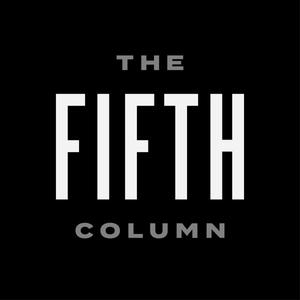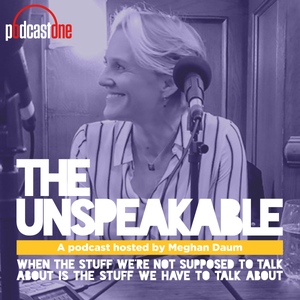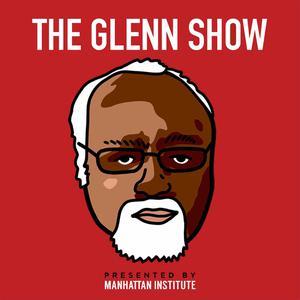
Banished by Booksmart Studios
Booksmart Studios
A reassessment of the ideas that conflict with modern sensibilities. Hosted by Amna Khalid. banished.substack.com
- 6 minutes 29 secondsWhat's at Stake at Columbia University (and beyond)?
We saw this clip of Columbia University History Professor Christopher Brown and wanted to share it far and wide. Dr. Brown delivered these remarks on Monday, April 20 at a faculty-led “Rally to Support our Students and Reclaim our University.” He was responding to two events: Columbia President Minouche Shafik’s Congressional Testimony on April 17 and the arrest of more than 100 Columbia students the next day.
Professor Brown focuses on what is happening at Columbia but his words serve as a powerful rejoinder to any and all:
* grandstanding politicians, who have no real understanding or appreciation of the mission of higher education
* timid academic leaders, who lack the wherewithal to stand up for faculty and make a case for the transcendent values of academic freedom and open inquiry
Here is a transcript of Professor Brown’s remarks:
Good afternoon. I’m Christopher Brown, professor in the history department. This is the first time I’ve ever held a microphone at a protest of any kind. I’m not sure whether that’s something to take pride in or not but I say it because this is not typical for me.
I’m here because I am so concerned about what has happened at this university. With where we are now and with where we are going.
Thursday, April 18, 2024 will be remembered as a shameful day in Columbia’s history.
The President’s decision to send riot police to pick up peaceful protesters on our campus was unprecedented, unjustified, disproportionate, divisive and dangerous. We are fortunate. We don’t know how fortunate we are. We are fortunate that no one was hurt.
With that kind of show of force. With all those firearms, all it takes is one person to get nervous, a table to fall, a car or truck to backfire out on Amsterdam Avenue. Shots fired. The New York Police Department does not belong on this campus except in moments of extreme emergency.
And that show of force was a sign of weakness. In trying to show that they meant business, what they showed was their incompetence.
I want to say one other thing. And that’s about the congressional testimony on Wednesday. And this is about academic freedom. It’s also about Columbia.
In three hours of testimony, the president of the university, to my mind, showed no pride in our institution. She said nothing meaningful about the virtues of this institution, of its people, of its faculty, of its staff, of its researchers--their dedication to excellence, their commitment to their students, the quality of the undergraduates and graduate students that we have here, the distinctive record of academic accomplishment and impact, the variety and rigor of the scholarship which is happening here today, the prospects for continued excellence. She didn’t say anything about any of those things.
She allowed slander of our institution to stand without rebuke. Soviet style education, no response. Intolerant bigots, no response. I know these folks and you know them too. That’s not who we are and she should know that.
There were members of Congress who wanted to decide who should be disciplined on this institution and how much, what should be taught, how it should be taught, who should teach, what academic department should exist and which should not, who should lose their leadership positions, who should be promoted, who should be fired.
Those are academic questions. Those are not congressional questions.
What is at stake? What is at stake is not just faculty governance. It’s institutional independence. It’s the sovereignty of Columbia University and every university like this one.
The United States has the greatest colleges and universities in the world and that’s why people come from around the world to study here, to research here and to teach here. That’s our inheritance. The universities like this one. And we would be fools not to defend it in every corner from those who do not believe in the academic mission and the pursuit of academic excellence.
So I have no confidence in her leadership. I’m speaking only for myself. I have no confidence in the president’s leadership. With what she has said and with what she has not said; and with what she has done and what she has not done, she has forfeited the privilege to lead this great university.
This is a public episode. If you’d like to discuss this with other subscribers or get access to bonus episodes, visit banished.substack.com/subscribe25 April 2024, 2:51 pm - 31 minutes 10 secondsDiversity Is Great, DEI, Inc. Isn't.
We recently appeared on "How Do We Fix It?", a wonderful podcast in search of constructive and practical ideas to address the many problems that plague our age. We had a fantastic time talking to the hosts Richard Davies and Jim Meigs about free speech, academic freedom and campus politics. We discussed DEI, Inc.—what the term means and why we think it’s useful. And we argued that an ascendant discourse of harm is at the heart of today’s threats to campus free expression, from the chilling effects of many DEI initiatives to the even chillier effects of anti-CRT legislation like Florida’s Stop WOKE Act. Thank you to Richard and Jim for giving us their permission to post our discussion on Banished.
This is a public episode. If you’d like to discuss this with other subscribers or get access to bonus episodes, visit banished.substack.com/subscribe31 March 2024, 7:36 pm - 19 minutes 29 seconds"Entitled to Judge"
Celebrated as the bedrock of democracy, freedom of expression is often seen as an American or western value. Yet the concept has a rich and global history. In the spring of 2023 I offered a course on the global history of free expression. The course tracks the long and turbulent history of freedom of expression from ancient Athens and medieval Islamic societies to the Enlightenment and the drive for censorship in totalitarian and colonial societies.
For the final assignment I asked students to write a letter to a person of their choosing reflecting on how their learning in class made them rethink the parameters of speech and expression in their own contexts. For the next few episodes I’ll be featuring some of the student letters that deserve a wider audience.
This episode features my former student, Aishwarya Varma, reading her letter to her friend Grace. Aishwarya graduated from Carleton College in 2023 and is now a software engineer at Target.
This is a public episode. If you’d like to discuss this with other subscribers or get access to bonus episodes, visit banished.substack.com/subscribe30 November 2023, 7:40 pm - 13 minutes 42 secondsThe Sunshine State Descends into Darkness (Again)
Worse than McCarthyism? In this episode of Banished, we explore the all-out assault on academic freedom in higher education in Florida. Turns out there’s a long history of campus witch-hunts in the state. We spoke with Robert Cassenello (history professor at University of Central Florida), Paul Ortiz (history professor at the University of Florida), James Grossman (executive director of the American Historical Association) and Ellen Schrecker (professor emerita at Yeshiva University). Episode transcript available here.
References & Links:
* Will Florida's "Stop WOKE Act" Hold Up in Court?, Banished podcast episode, November 1, 2022.
* Stacy Braukman, Communists and Perverts Under the Palms: The Johns Committee in Florida, 1956-1965, University Press of Florida, 2012.
* Daniel Golden, “‘It’s Making Us More Ignorant’: Governor Ron DeSantis’s anti-critical-race-theory legislation is already changing how professors in Florida teach,” Atlantic, January 3, 2023.
* Karen L. Graves, And They Were Wonderful Teachers: Florida’s Purge of Gay and Lesbian Teachers, University of Illinois Press, 2009.
* Josh Moody, “DeSantis Aims to Turn Public College Into ‘Hillsdale of the South,’” Inside Higher Ed, January 11, 2023.
* Emma Pettit, “The Inquisition: State intrusion on higher ed is nothing new. Decades ago, Florida lawmakers tried to purge campus ‘immorality,’” Chronicle of Higher Education, October 11, 2022.
* Pettit, “‘Private Little Hell’: A Florida committee once hunted for gay people on Florida’s campuses. Sixty years later, the effects linger,” Chronicle of Higher Education, November 28, 2022.
* Pettit, “A Florida University Is Quickly Assembling a List of Courses on Diversity. Why? DeSantis Asked,” January 3, 2023.
* Victor Ray, “Florida Man Calls the Thought Police,” The Nation, January 11, 2022.
* Christopher Rufo, "The Conservative Counter-Revolution Begins in the Universities,” YouTube, January 12, 2023.
* Ellen Schrecker, “Yes, These Bills Are the New McCarthyism,” Academe Blog, September 12, 2021.
* Schrecker, No Ivory Tower: McCarthyism and the Universities, Oxford University Press, 1986.
* Adam Steinbaugh, “Why Florida’s betrayal of the First Amendment to ‘Stop WOKE’ should concern everyone, including conservatives,” November 29, 2022.
* Cathy Young, “Ron DeSantis, Chris Rufo, and the College Anti-Woke Makeover,” The Bulwark, January 16, 2023.
* United Faculty of Florida website; UFF Collective Bargaining Agreement
* “The Committee,” documentary film about the Florida Legislative Investigative Committee (or “Johns Committee”)
* Florida HB 7 (aka the Stop WOKE Act)
* Florida HB 233
Related
This is a public episode. If you’d like to discuss this with other subscribers or get access to bonus episodes, visit banished.substack.com/subscribe23 January 2023, 3:06 pm - 21 minutes 15 secondsWill Florida's "Stop WOKE Act" Hold Up in Court?
Banished returns with a special episode on the status of a lawsuit challenging Florida’s “Stop WOKE Act.” To understand how this law threatens open inquiry and academic freedom, Amna talked to the two co-plaintiffs, University of South Florida history professor Adriana Novoa and University of South Florida senior Sam Rechek. For help with the legal arguments, Amna spoke with Adam Steinbaugh, attorney with the Foundation for Individual Rights and Expression.
This is a public episode. If you’d like to discuss this with other subscribers or get access to bonus episodes, visit banished.substack.com/subscribe1 November 2022, 2:41 pm - 33 minutes 22 secondsWhose Tacos?
Tucker Carlson claimed that tacos are American. Rick Bayless was attacked for appropriating Mexican cuisine. Jamie Oliver hired a team of cultural appropriation specialists to advise him when writing recipes, to make sure he didn’t run afoul of the new culinary orthodoxy.
What’s going on in the restaurant world and at our dinner tables? Who exactly owns a cuisine, and why do we get so proprietary when it comes to food? On this week’s Banished, Amna Khalid talks with Constanza Ocampo-Raeder, professor of anthropology at Carleton College, about food, national cuisines and the politics of cultural appropriation.
Note from Amna: Banished is taking a hiatus, but you can always continue to follow my thoughts on Twitter @AmnaUncensored, and my work at amnakhalid.com. Thank you for listening!
This is a public episode. If you’d like to discuss this with other subscribers or get access to bonus episodes, visit banished.substack.com/subscribe12 June 2022, 12:39 am - 28 minutes 33 seconds'Shakespeare, Thou Hast Been Cancelled'
Amna Khalid talks with Laura Bates, Professor of English at Indiana State University and founder of Shakespeare in Shackles — a prison program for those in solitary confinement — about the Bard’s decline in the modern curriculum.
This is a public episode. If you’d like to discuss this with other subscribers or get access to bonus episodes, visit banished.substack.com/subscribe27 May 2022, 9:13 pm - 24 minutes 30 seconds"Oh Danny, Is This the End?"
One of the most popular musicals of all time, Grease seems to have fallen from grace. Most recently, two schools in Australia were planning to stage a joint production of the musical this year, but shelved it when students complained that the content of the musical was “offensive.”
Why has the musical come under fire? Is it time to retire it? On this week’s Banished, Amna Khalid speaks with Scott Miller, founder and artistic director of New Line Theater, an alternative musical theater company in St. Louis.
This is a public episode. If you’d like to discuss this with other subscribers or get access to bonus episodes, visit banished.substack.com/subscribe11 May 2022, 10:23 pm - 29 minutes 31 secondsEXCLUSIVE INTERVIEW: St. Olaf College Punishes Professor for Inviting Peter Singer to Campus
Earlier this year, St. Olaf College’s Institute for Freedom and Community invited controversial bioethicist Peter Singer for a virtual conversation titled “The Point of View of the Universe.” This was an invitation in keeping with the mission of the institute, which is to explore “diverse ideas about politics, markets, and society” and “challenge presuppositions, question easy answers, and foster constructive dialogue.” Shortly after the event was announced, St. Olaf’s disability office sent out a campus-wide email, stating that it: “unequivocally reject[s] Peter Singer’s views on people with disabilities, which are harmful to our values, mission and ongoing efforts to provide an inclusive environment for our students, faculty and staff.”
This week came news that the IFC’s director, Professor Edmund Santurri, would no longer helm the institute. His directorship had been rescinded. In today’s special episode, Amna Khalid speaks with Santurri about what exactly led to his termination.
This is a public episode. If you’d like to discuss this with other subscribers or get access to bonus episodes, visit banished.substack.com/subscribe27 April 2022, 5:18 pm - 51 minutes 16 secondsIn the Eye of the Storm
In fall 2021, the philosophy department at Rhodes College invited the bioethicist Peter Singer to speak to the school. A controversial and important figure, the New Yorker has called Singer the “world’s most influential living philosopher,” and in 2005, Time Magazine named him one of most influential people alive.
But as one of the world’s foremost utilitarian philosophers, some of Singer’s positions have earned him detractors. In the build-up to his talk on “Pandemic Ethics,” several Rhodes students and faculty waged a campaign to have him disinvited on the grounds that “his reprehensible beliefs … deny the very humanity of people with disabilities.”
At a time when other schools like MIT were cancelling speakers deemed problematic, the philosophy department at Rhodes stood firm. In today’s episode, host Amna Khalid speaks with department chair Rebecca Tuvel and professor Daniel Cullen about how and why they refused to disinvite Singer.
This is a public episode. If you’d like to discuss this with other subscribers or get access to bonus episodes, visit banished.substack.com/subscribe20 April 2022, 8:21 pm - 30 minutes 6 secondsCOVID-19: Lab Leak Or Natural Leap?
In February 2020, The Lancet, a leading British medical journal, published a statement by more than two dozen scientists condemning the hypothesis that COVID-19 had leaked from a Chinese lab — effectively halting scientific inquiry along those lines. But a handful of researchers refused to rule out the so-called “lab-leak” theory and soon found themselves shunned and ostracized by their colleagues.
Alina Chan, a molecular biologist and then-postdoctoral fellow at the Broad Institute of MIT and Harvard, was one such researcher. This week on Banished, host Amna Khalid talks with Chan about the politicization of science.
More from Booksmart Studios:
This is a public episode. If you’d like to discuss this with other subscribers or get access to bonus episodes, visit banished.substack.com/subscribe7 April 2022, 9:02 pm - More Episodes? Get the App
Your feedback is valuable to us. Should you encounter any bugs, glitches, lack of functionality or other problems, please email us on [email protected] or join Moon.FM Telegram Group where you can talk directly to the dev team who are happy to answer any queries.
 The Fifth Column
The Fifth Column
 Blocked and Reported
Blocked and Reported
 The Unspeakable Podcast
The Unspeakable Podcast
 Lexicon Valley from Booksmart Studios
Lexicon Valley from Booksmart Studios
 Bully Pulpit with Bob Garfield by Booksmart Studios
Bully Pulpit with Bob Garfield by Booksmart Studios
 The Glenn Show
The Glenn Show